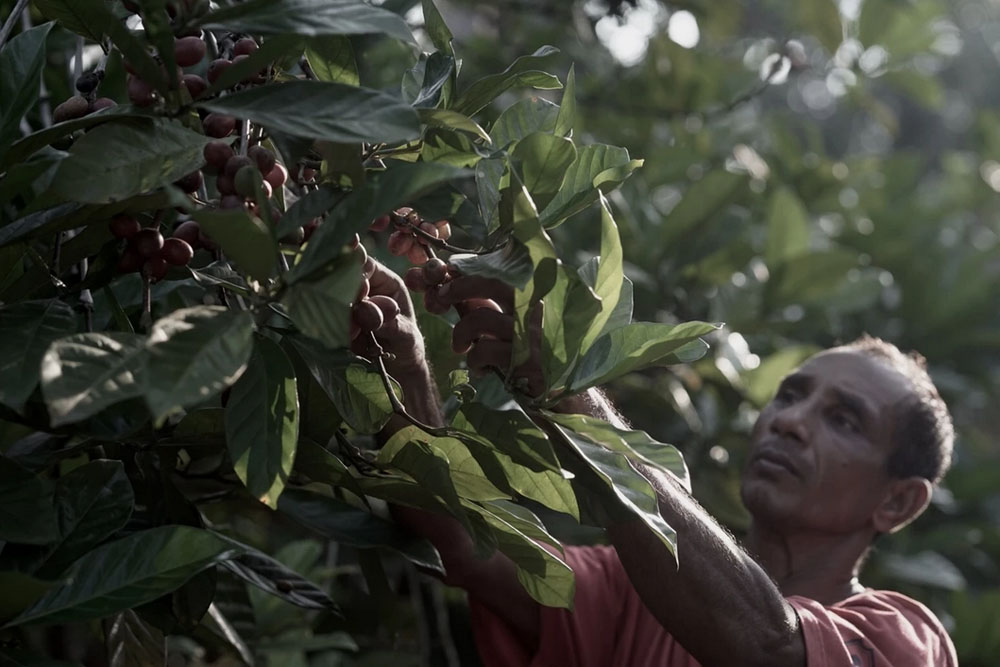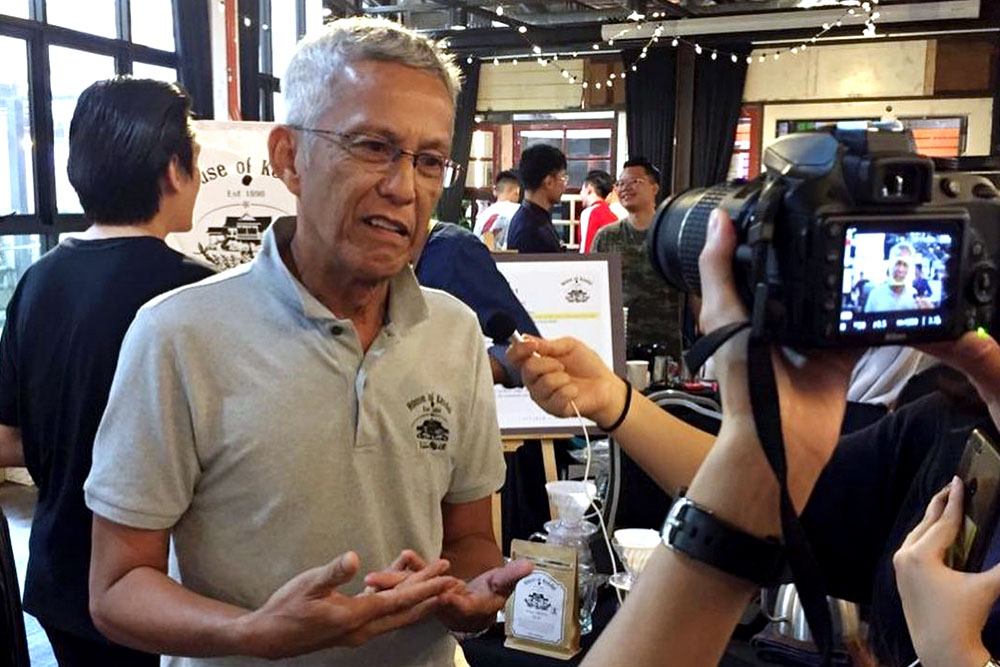BATU PAHAT, Sept 9 — Pickers plucking ripened coffee cherries by hand from thick, leafy branches. Their faces are tanned from the sun as their baskets swell slowly with the gem-like treasures, ruby red and amber gold.
If this feels like a scene from the distant reaches of Central America or Africa — not surprising, given we are increasingly accustomed to single origin coffee from places like Costa Rica and Kenya these days — then you might be surprised to learn that this kebun kopi (coffee farm) is found in Batu Pahat.
Johor has long been the heartland of Malaysian grown coffee, particularly the Liberica varietal.
However, local coffee farms have been dwindling in the past few decades in favour of more profitable crops such as oil palm.
Now there looks to be a resurgence of Liberica beans thanks to homegrown coffee producer and roaster House of Kendal, albeit giving our kopi kampung a specialty coffee makeover.

House of Kendal is run by 18-year-old coffee roaster Adam Esham and his father, Esham Salam, an engineer and entrepreneur.
Adam recalls, “I got involved in this business with my father when I was 17. We got inspired by the history of the coffee in Malaysia which is mainly Liberica. Its research centre at Senggarang was in my father’s hometown of Batu Pahat.”
In the 1960s, their family’s coffee farm burned down due to fires caused by a heatwave. Since then the coffee crops were abandoned and replaced with rubber and oil palm.
A couple years ago, the father and son duo revived their family business by replanting the Liberica and nurturing these micro farms to produce coffee of international calibre.
Adam, who has competed in the Asean Open Roasting Championship held in Ho Chi Minh City as well as the Malaysian Brewers Cup 2020, explains, “We want to bring back the glory of the Liberica beans. At House of Kendal we manage a cluster of kebun or smallholdings in Malay, and help the farmers get better returns.”

Part of House of Kendal’s mission is to build a profitable and sustainable enterprise. This means developing a closer relationship with the growers, pickers, millers and everyone in the supply chain they work with.
Adam shares, “Labour is the biggest problem for ageing farmers. We assist by helping with the picking, thus ensuring quality of berries, caring for the trees and most importantly giving them fair prices.”
While there is always a huge market for coffee, smaller producers can’t compete with the scale of the bigger players. Adam explains, “The community has a misconception of Liberica as bad coffee as there isn’t much high quality Liberica out in the market. How we have approached it so far is with competitive prices and meeting with the people in the specialty coffee market. We attend coffee fests and improve the quality of our coffee by creating new processes such as Nitrogen Maceration.”
One approach to stand out from the crowd is to emphasise the unique traits of Liberica, especially as compared to typical Arabica beans prevalent in specialty coffee. Different methods of processing can result in wildly different flavour notes.
Adam observes, “Using natural process, you could get a hint of wine texture with strong jackfruit. Hazelnut and chocolate for honey process. For our Anaerobic and Nitrogen Maceration processed Liberica, you will get notes of rum, wine, raspberry, jackfruit, floral and bubblegum.”

The terroir of the land where coffee is farmed matters. Bagan and Senggarang are the two main areas — both coastal settlements — in Batu Pahat where Liberica is traditionally grown.
According to the House of Kendal duo, the secret to the Liberica beans’ sweetness lies in the coastal clay soil. However, much of these desirable flavour notes are lost if Liberica is processed and roasted the same way as Arabica and Robusta beans.
Liberica coffee has a candy-like sweetness, which can be really sweet according to Adam, as Liberica beans have the highest sugar content among all varietals.
He adds, “It also offers a very rounded and silky mouthfeel. When you make milk-based drinks with Liberica it really highlights the sweetness with the hazelnut notes.”
House of Kendal also believes strongly in collaboration with other local coffee professionals and farmers to promote homegrown coffee.

Their Itamanis blend is a mix of Liberica beans from Batu Pahat and Arabica Sabarica beans from Ranau, Sabah; the latter courtesy of Jackz Lee of Relax Coffee, a fellow champion of Malaysian specialty coffee.
But sometimes folks just like it old school or kopi kampung style. Strong, bitter coffee caramelised during roasting with sugar and margarine, meant to be served with copious amounts of condensed milk.
For these fans of more traditional coffee, House of Kendal offers their Kopi Bagan, which is 100 per cent Liberica beans.
Clearly, provenance is important and it goes beyond the soil and the coffee varietal. The very origins of the name “House of Kendal” is a story in itself.
Delve deeper into the history of the Malay Archipelago or Nusantara, and you’ll discover the name Kendal occurring multiple times: a province in Cambodia where Phnom Penh now resides; on the island of Java; another province north of Semarang has the same name.

Adam’s great-great grandfather hails from Kendal, Semarang so the name carries the weight of history and culture for his family. It’s a grand legacy, a name that resounds. The next generation is well on the way, if Adam’s passion is anything to judge by.
Currently pursuing his diploma in coffee through the Specialty Coffee Association’s Coffee Skills Programme, the former school clarinet player likens coffee to a hybrid of classical music and jazz: “There are things you should follow the book and then there are things you should always experiment and improvise. I learn from experience through friends, the kebun and roasting coffee for House of Kendal.”
When we think of specialty coffee in Malaysia, we tend to imagine goateed baristas in bespoke denim aprons, standing next to their shiny espresso machines. Sometimes you see a humongous roaster taking the place of pride inside their café, announcing to the world: “This is what we do. We know coffee.”
Seeing how down and dirty this young man gets, working directly with coffee farmers and pickers in the kebun, championing Malaysian coffee when it’s still not considered as trendy as foreign beans (yet), and you realise that there is more than “we know coffee.”
For House of Kendal, given all their history with our country’s Liberica beans, it may well be, “We are coffee.”
*Learn more about House of Kendal’s coffees at https://houseofkendal.com



















